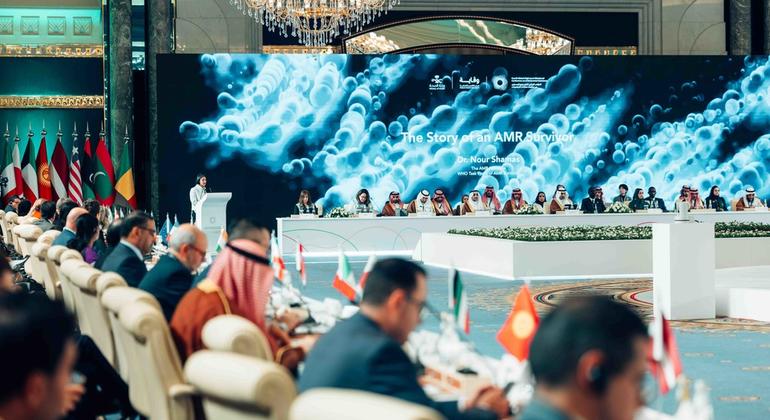The IV High-Level Ministerial World Conference on Antimicrobial Resistance (AMR) concluded successfully with the approval of the Jeddah Commitments, a set of practical measures aimed at addressing the growing challenge of antibiotic resistance. This event took place in the city of Jeddah, Saudi Arabia, where Minister of Health Fahad Al-Jalajel described these commitments as crucial to the action of member states and international organizations in response to this global health crisis.
The Jeddah Commitments are in line with the Political Declaration on AMR recently adopted by the UN General Assembly in New York. One of the highlights is the active role of the Quadripartite Joint Secretariat on AMR, composed of FAO, UNEP, WHO, and OIE. Additionally, the creation of a “biotechnological bridge” was proposed to promote research and innovation for solutions to this health issue.
Antimicrobial resistance, where germs become immune to previously effective drugs, represents one of the greatest threats to global public health, according to the World Health Organization (WHO). This resistance not only affects humans but also animals and the environment, increasing the risk of potentially deadly infections.
During the conference, Al-Jalajel announced the establishment of a RAM Learning Center under the “One Health” approach and a Regional Logistics and Access to Antimicrobials Center in Saudi Arabia. These centers aim to promote international collaboration and facilitate global access to these vital medications.
Jacqueline Alvarez, UNEP representative, emphasized the significant progress represented by the Jeddah Commitments for multilateralism and intersectoral collaboration. She highlighted the importance of increasing funding for research and development of sustainable solutions, ensuring that these efforts include all countries, especially those in development, to prevent an increase in health disparity among nations.
The conference concluded with the second plenary assembly of the Multilateral Partnership Platform on AMR, where delegates discussed the next steps to implement these new commitments. This platform brings together 250 members from various sectors and levels with the purpose of uniting efforts and creating a comprehensive cooperation ecosystem to address antimicrobial resistance.
Referrer: MiMub in Spanish
